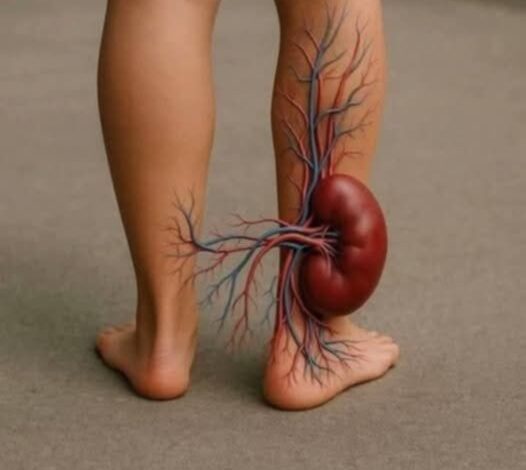Critical Warning Signs of Kidney Disease You Shouldn’t Ignore

Understanding Kidney Function and Health
Your kidneys serve as essential filtration systems, processing waste products and maintaining proper fluid balance throughout your body. These remarkable organs work continuously to keep your blood clean and your body’s chemistry in perfect harmony. Understanding kidney disease symptoms early can be life-saving.
Recognizing Early Kidney Disease Symptoms
Kidney problems often develop silently, earning them the nickname “silent killers.” Many people experience kidney failure symptoms without realizing their significance. Here are the most important warning signs to monitor:
Physical Symptoms of Kidney Problems
Persistent Exhaustion and Fatigue
Chronic kidney disease frequently causes overwhelming tiredness. When kidneys can’t filter toxins effectively, waste buildup leads to constant fatigue that doesn’t improve with rest.
Swelling and Fluid Retention
Kidney dysfunction symptoms include noticeable swelling in your ankles, feet, hands, or face. This occurs when kidneys cannot properly regulate fluid balance in your body.
Urination Changes
Pay attention to changes in urination patterns, including:
- Increased frequency, especially at night
- Decreased urine output
- Foamy or bubbly urine
- Blood in urine or dark-colored urine
- Painful urination
Additional Warning Signs
Cognitive and Neurological Symptoms
Kidney disease can affect mental clarity, causing difficulty concentrating, memory problems, and confusion. These symptoms occur when toxins accumulate in your bloodstream.
Digestive Issues
Nausea, vomiting, loss of appetite, and a persistent metallic taste in your mouth are common kidney disease indicators. These symptoms result from waste product buildup affecting your digestive system.
Muscle Problems
Electrolyte imbalances caused by kidney dysfunction can lead to muscle cramps, weakness, and restless legs, particularly at night.
Major Risk Factors for Kidney Disease
High Blood Pressure and Kidney Health
Uncontrolled hypertension is one of the leading causes of kidney damage. High blood pressure damages blood vessels in your kidneys, reducing their filtering ability over time.
Diabetes and Kidney Function
Diabetic kidney disease affects millions of people with diabetes. High blood sugar levels damage kidney blood vessels, leading to diabetic nephropathy—a serious complication requiring immediate attention.
Other Risk Factors
- Family history of kidney disease
- Age over 60
- Obesity
- Heart disease
- Smoking
- Certain medications
Prevention and Treatment Strategies
Lifestyle Modifications for Kidney Health
Dietary Changes
Adopt a kidney-friendly diet low in sodium, processed foods, and excess protein. Focus on fresh fruits, vegetables, and whole grains to support kidney function.
Hydration and Kidney Health
Proper hydration helps kidneys filter waste effectively. Aim for adequate water intake unless your doctor advises fluid restrictions.
Blood Pressure Management
Regular monitoring and medication compliance are crucial for preventing kidney damage from hypertension.
Diabetes Control
Maintaining healthy blood sugar levels through diet, exercise, and medication significantly reduces kidney disease risk.
When to Seek Medical Attention
Don’t ignore persistent symptoms of kidney problems. Early intervention can slow or prevent kidney disease progression. Schedule regular checkups if you have risk factors, and seek immediate medical attention for:
- Severe swelling
- Significant changes in urination
- Persistent nausea and vomiting
- Extreme fatigue
- Chest pain or shortness of breath
The Importance of Early Detection
Kidney disease treatment is most effective when started early. Regular screening tests, including blood tests measuring creatinine levels and urine tests checking for protein, can detect kidney problems before symptoms appear.
Your kidneys work tirelessly to maintain your health. By recognizing warning signs, managing risk factors, and maintaining regular medical care, you can protect these vital organs and maintain optimal kidney function for years to come.
Remember: kidney health directly impacts your overall wellbeing. Take symptoms seriously, make healthy lifestyle choices, and work closely with healthcare professionals to preserve your kidney function.